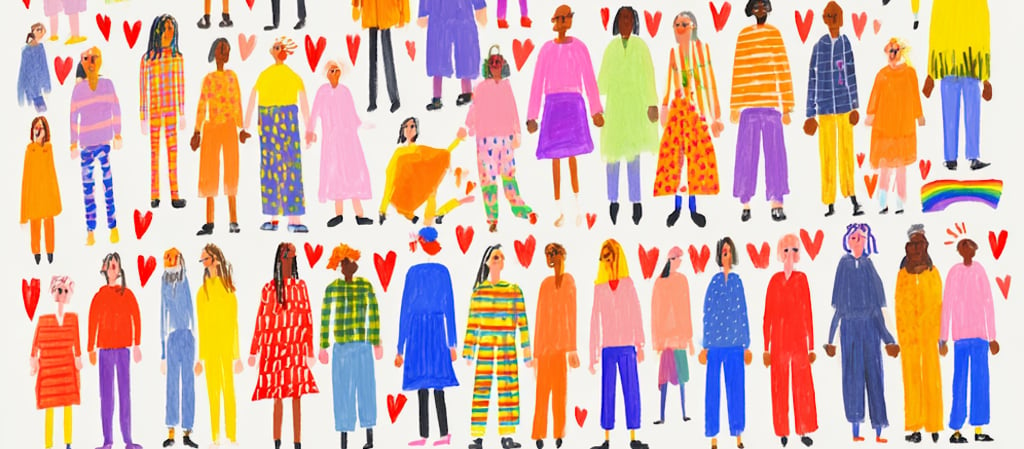Not Narrow — Necessary: Why The Comfort Zone Community Chooses a Mixed Room Over a Tight Niche
Discover why the Comfort Zone Community chooses mixed rooms over tight niches for women 50+ navigating grief, loss, and life transitions. Community isn't a funnel—it's a house.
PERSONAL REFLECTIONS
Samantha I'Anson
9/19/20253 min read


I've been told, more times than I can count, that to grow I must pick a niche and stick to it. The gurus say it like gospel: carve out a neat little box, live in it, optimize it, rinse, repeat. But community work isn't a funnel—it's a home. And in a home, you want rooms that hum with different voices, not one echoing chorus of the same exact pain.
Most women over 50 have experienced loss in some form: a parent, a partnership, fertility dreams, family estrangement, career chapters, friendships that unraveled. That shared thread of grief and accompanying chronic stress is real and important. It's also not identical. The ways stress manifests, the resources we need, and the stage we're at can be vastly different. That variation is exactly why a mixed room often heals better than an echo chamber.
Why a mixed emotional palette matters
Picture a room where everyone has lost the same person in the same way. The intensity is uniform, the conversation loops endlessly: the same questions, the same raw retelling, the same ache amplified. Even the kindest people can unintentionally sustain each other's distress without offering routes forward.
Now picture a living room with a mix: someone raw and recently bereaved chats with someone who's found ways to carry love forward. A woman juggling caregiving and work exchanges practical tips with a neighbour who shares recipes and small rituals that soothe. A quieter member offers a steady presence when conversations get heavy. This mix balances emotional temperature, provides practical help, and encourages natural mentoring without hierarchy.
This isn't anti-niche—it's pro-human
I'm not dismissing niche entirely. Niche clarifies messaging and tidies up marketing channels. But for a community designed to hold women through messy, lifelong transitions, narrowing too far risks missing the most valuable element: relational diversity. Diverse experiences create more ways to meet someone where they truly are.


How we create safety within openness
Being open to varied experiences doesn't mean leaving doors unguarded. We're grief-informed and trauma-sensitive by design:
Clear community guidelines cover requests for help, confidentiality, and when to refer to professional support.
Curated thematic rooms like The Kitchen, a gathering place for those who find cooking for one challenging – it’s focused enough to be meaningful, yet broad enough to avoid emotional monoculture.
Intentional onboarding via The Connection Compass ensures members are vetted, understand the tone, the boundaries, and how to ask for what they need.
A Gentle Invitation—no pressure
If you've been told you must niche down or fit in a box to be "seen," take that advice with a grain of salt. Community doesn't always fit into neat marketing boxes. If you're curious about what a mixed, held room feels like, come sit with us. No need to perform. Bring what you need: a story, a question, or simply your presence.
Join our upcoming Chat and Chill drop-in events - and see for yourself why, in a house full of different voices, more people find the kind of company that helps them breathe again.
Another Invitation...
I’m inviting a small group of women to become The Comfort Zone Community facilitators. These women will train with me, co-host rooms, and help shape the house we’re building — bringing accountability, care and practical know-how. If you’re curious about grief-sensitive and trauma-aware facilitation and would like to grow with a supportive peer team, I’d love to hear from you. Express your interest here to be added to the waitlist.
support@inyourcomfortzone.com
